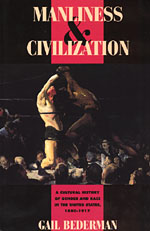John Smith (1580-1631) - Helped establish Jamestown, VA via Virginia Company of London
Thomas Hooker (1586-1647) - Left Massuchessetts Bay Colony to go settle Connecticut
John Winthrop (1587-1649) - Led English Puritans to New World; became governor of Massachusetts Bay Colony
William Bradford (1590-1657) - Leader of Plymouth colony in Massachusetts; sailed over on Mayflower with the rest of the Pilgrims ("separatists"); writer of Mayflower Compact
Roger Williams (1603-1683) - Theologian who helped create Rhode Island; believed in tolerance, and in separation of church and state
King Philip/Metacom (1639-1676) - Sachem of Wampanoag; leader of King Philip's War - war with Southern New England
Samuel Parris (1653-1720) - Minister of Salem Village; big leader of Salem Witch Trials; very rigid and egotistical; not very well-liked
Cotton Mather (1663-1728) - Son of Increase Mather; very influential Puritan preacher; wrote tons of books and pamphlets; very concerned about the second and third generations of Puritans falling away from original Puritan mission in America - advised them to stay the course; friends with judges in Salem Witch Trials
Jonathan Edwards (1703-1758) - "Sinners in the Hands of an Angry God" (1741);
very interested in nature; very influenced by John Locke - "I know things through my senses;" leading preacher of the Great Awakening - all about "bodily effects;" very influenced by Newton as well; his followers became known as New Light Calvinists
Thomas Paine (1737-1809) - Wrote
Common Sense (1776), etc.
John Adams (1736 - 1826) Second U.S. president, first U.S. Vice President; represented Continental Congress in Europe; opposed Stamp Act of 1765;
Thomas Jefferson (1743-1826) - Third U.S. President; primary author of Declaration of Independence; promoted republicanism and yeoman farmer ideal; Louisiana Purchase; influenced by Enlightenment; favored states rights and wanted limited federal government; died on Fourth of July - and so did John Adams
Abigail Adams (1755-1818) - Wife of John Adams; known for giving him lots of advice when he was in Europe representing Continental Congress - "remember the ladies"; advocate of married women's property rights and women's education
Benjamin Rush (1745-1813) - Physician and writer; one of the signers of Declaration of Independence; opponent of slavery and capital punishment; consulted Thomas Paine on writing of
Common Sense; founded Dickinson College; believed in right to medical freedom; influenced development of psychiatry
Andrew Jackson (1767-1845) - Seventh U.S. President; shaped Democratic Party; "Old Hickory;" first president associated with the frontier as he was based in Tennessee; a general in War of 1812; followed Jefferson as a supporter of the "agricultural republic;" killed the Second Bank of the United States; signed Indian Removal Act of 1830
Lyman Beecher (1775-1863) - Presbyterian minister and leader of Second Great Awakening; temperance guy too; was against abolitionism
Sylvester Graham (1794-1851) Presbyterian minister; early advocate of dietary reform and vegetarianism and temperance; invented Graham bread in 1829; main goal was to curb lust; was against additives in bread - butchers and commercial bread makers often rioted when he spoke
Catherine Beecher (1800-1878) - Daughter of Lyman Beecher; sister of Harriet Beecher Stowe; sister of Henry Ward Beecher and Charles Beecher (famous Congregationalist ministers); opened Hartford Female Seminary in 1823; believed women and not men should be educators
William Lloyd Garrison (1805- 1879) Abolitionist and editor of radical abolitionist paper The Liberator; reformer; supported temperance and women's suffrage
Louis Agassiz (1807 - 1873) First guy to mention the Ice Age
Abraham Lincoln (1809-1865) Sixteenth President of U.S.; Republican; Emancipation Proclamation of 1863
Orson Fowler (1809 - 1887) Phrenologist who edited and published American Phrenological Journal from 1838-42; wrote lots of self-improvement books; popularized Octagon house
Charles Darwin (1809-1882) English guy; natural selection; evolution
Theodore Parker (1810 - 1860) Transcendentalist and Unitarian minister; an abolitionist and temperance guy too, and believed in prison reform
Herbert Spencer (1820-1903) English philosopher who came up with all-encompassing concept of evolution; coined "survival of the fittest;"
Frances Willard (1839 - 1898) Temperance reformer and suffragist; president of WCTU; really into bicycle riding
G. Stanley Hall (1844-1924) American psychologist into childhood studies; founded American Journal of Psychology, and was first president of the APA
Charles Sanders Pierce (1839-1914) Scientist, philosopher, and mathematician; one of founders of Pragmatism; wrote about logic and semiotics
Oliver Wendell Holmes, Jr. (1841-1935) Jurist who served on Supreme Court from 1902-1932; fought for the North in the Civil War
William James (1842-1910) American psychologist and philosopher; fairly sick as a kid; one of founders of Pragmatism;
Thorstein Veblen (1857-1929) Sociologist and economist;
Theory of the Leisure Class (1899)
John Dewey (1859-1952) Philosopher, psychologist, and educational reformer; one of founders (along with Charles Sanders Pierce and William James) of Pragmatism; one of the founders of the New School for Social Research; hated dichotomy, and was especially against idea of mind/body split; wanted to unite mind and body in education; used cooking to teach science in schools; believed skills students learned should be integrated into their daily lives; Progressive education was largely tossed aside during Cold War as U.S. had new obsession with scientific education; considered a public intellectual
Jane Addams (1860-1935) First woman to be awarded Nobel Peace Prize; founded Hull House in 1889, which included a night school, coffeehouse, gymnasium, music school, girls club, etc
William Jennings Bryan (1860-1925) Politician and lawyer; Scopes Trial guy; one of the most popular orators in U.S.; devout Presbyterian; Populist leader; fought trusts and big banks; hardcore anti-Darwinist
Luther Gulick (1865 - 1918) P.E. instructor and advocate of the play movement; founder of Camp Fire Girls; served as president of the Playground Association of America
Margaret Mead (1901-1978) American anthropologist
Langston Hughes (1902-1967) Poet, novelist, and writer big in the Harlem Renaissance
Malcolm X (1925-65) Black muslim and speaker for Nation of Islam;


















































